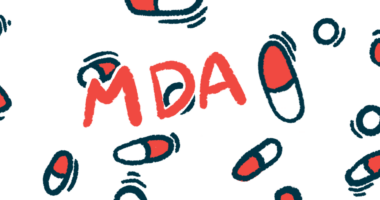FDA Grants Fast Track Status to Oral Therapy Candidate Omaveloxolone

The U.S. Food and Drug Administration (FDA) has granted its fast track designation to Reata Pharmaceuticals’ oral candidate omaveloxolone for Friedreich’s ataxia (FA).
Fast track status is designed to accelerate the development of investigational therapies that address unmet medical needs in serious or life-threatening conditions. It makes Reata eligible for more frequent meetings with the FDA and discussions about omaveloxolone’s development plan.
“We are pleased to receive fast track designation as it highlights the potential of omaveloxolone to address a significant unmet medical need for the treatment of patients with Friedreich’s ataxia, a severe and devastating disease,” Warren Huff, Reata’s president and CEO, said in a press release.
Meanwhile, the company still plans to file for omaveloxolone’s approval in the U.S. in early 2022, which was announced earlier this year following a preliminary meeting with the agency.
“We remain committed to submitting our new drug application during the first quarter of 2022 and continue working with the FDA to secure regulatory approval as quickly as possible,” Huff said.
Omaveloxolone is an investigational oral therapy designed to activate Nrf2, a protein that regulates gene activity to restore energy production in cells — which is impaired in people with FA.
The submission to the FDA will be based on results from a two-part Phase 2 clinical trial, called MOXIe (NCT02255435), which investigated the safety and efficacy of omaveloxolone in people with FA, ages 16–40.
Part 1 of the study established the recommended dose at 150 mg once a day, and Part 2 evaluated that dose’s safety and efficacy over a placebo for 48 weeks (nearly one year).
Results from the second part, involving 103 patients, showed that omaveloxolone was generally safe and well-tolerated and significantly improved multiple measures of neurological function, as well as the ability to perform daily activities.
While the FDA initially declared the results were not strong enough to merit regulatory approval, the Friedreich’s Ataxia Research Alliance issued a petition — signed by more than 74,000 people worldwide — asking Reata to submit omaveloxolone for approval on an urgent basis and the FDA to consider its approval based on existing evidence.
In the preliminary meeting in which Reata and the FDA later discussed the approval plans for omaxexolone, the agency also indicated that, given the seriousness of FA and the lack of treatment for the disease, Reata may be allowed to submit additional clinical and nonclinical data even after the application is officially submitted.







